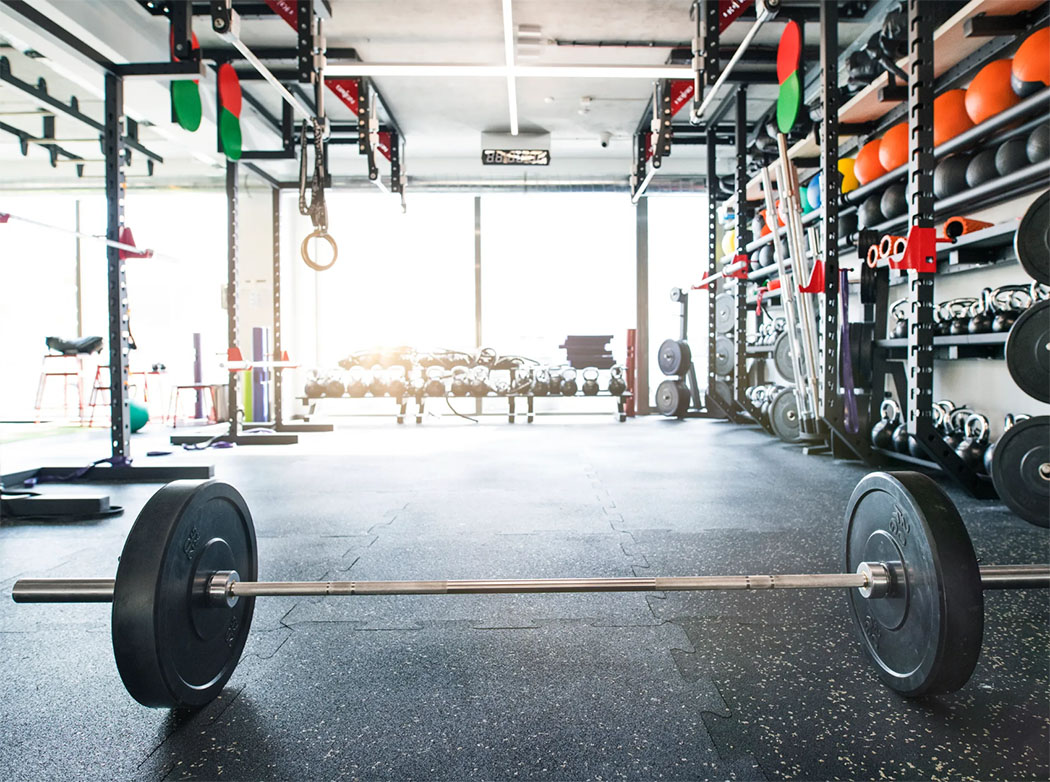
Back there in 2014, I was in Smethwick, Birmingham, for the 2014 English Weightlifting Championships, and I was fortunate enough to have a conversation with Tommy Yule. We spoke of many things, one of which was the psychology. Following the discussion, I cast my thoughts back to previous events I have attended and interlinked what we had spoken of alongside other matters that may be relevant.
Related: How Can I Have A Mature Mindset?
I feel I must state before going any further, by no stretch of the imagination am I, or do I think I am, a sports psychologist. That is a personal reflection, experience and belief and can be useful for some of you in your coaching and lifting.
Mental Toughness
Something that seems to be lacking considerably in most sports is assessing mental toughness. I cannot speak from personal experience here, but I know many elite weightlifters who have opened up on a new individual best lift in competition. To many lifters out there, this is an area well outside their comfort zone, which will ultimately fail. So what could potentially be the key to this handful of elite lifters?
| Confidence
Confidence is undoubtedly to be a factor. Lifters are confident in their coach, and they are confident in the program that has built them up to this day. Tied in with this…
| Self-confidence
The athlete believes not only in their coach but also in themselves. It is unquestionable whether they can or cannot make the lift. But, there is a fine line between confidence and arrogance. The athlete will also understand that although they are confident in their ability to get the lift and their strength to stand up with it, they will also accept the possibility of failure due to unforeseen circumstances.
| Ability to Perform Under Pressure
In a competition, there are some factors to think about. Firstly, as spoken of above, you may be opening a lift that matches your best one, a kilo or two under, or maybe even higher! On top of this, you have a clock ticking away, forcing you to make your lift within a minute of the bar is loaded. As a lifter, there are expectations, which pours huge amounts of pressure on you. Can you handle this? And finally, there is a big audience of people watching you lift. That alone can make or break a lifter. However, It is the visual perception of the lifter that will decide this.
Do you see:
- All eyes on you. A cold silence as you address the bar. Blank, emotionless faces are staring at you. Your thoughts are: let’s just get this over so that other guys can lift.
- All eyes on you. An electric tension in the room as you address the bar. Blank faces are anxiously waiting for your performance, with the hope of inspiration upon your success. Your thoughts are: let’s show these guys how it’s done. I’m here; this is me; let’s do this!
| Anxiety
I spoke of the comfort zone earlier. Some lifters like to know what they can do before entering the competition, and they “play it safe” and stay within their boundaries. An interesting thought worth considering; the role of pressure and anxiety can enhance your performance. To step outside your comfort zone may be the key to your success. On the same school of thought, one step too far outside your comfort zone, and you will likely crash and burn. Realistic goals are the key ingredient to this success.
If I told you that you need to snatch a new PB because someone’s life depends on it, the pressure would be so great that it would significantly reduce the likeliness of making the lift. Conversely, If I said if you take the lift, I’ll give you 50p, then there is no incentive even to bother. Now let’s say I’ll give you ten bucks. Thus I would be confident that performances would go up!

Dealing with failure
Now, this is a big area to consider. Failure isn’t necessarily bombing out. It may be falling short of a total you wanted or even expected to achieve, or maybe just not making a new personal best lift or even matching a previous one. On fewer occasions, it may be your thoughts about your performance (i.e., you didn’t feel technically sound, as usual, didn’t feel as well prepared in yourself, etc.). How do we deal with these things? Do we throw our toys out of the pram, display anger towards others, break down and cry, or various other reactions?
Something that we must accept is that failure is a possibility. Not only this, but it is a learning curve. Something went wrong that resulted in your failure. Generally, I only ever see one of two reactions:
- An angered reaction: “I just don’t know why the hell I couldn’t do it” – sometimes an attempt to state the blame is on an external factor. As cruel as it may be, the reality is that YOU could not do it on that given day. The only way to move on is to embrace this, reflect upon it, find out WHY, and then build on it for the future.
- A demoralized reaction: “I’m just not good enough for this” – The broken spirit can be hard to fix sometimes. Usually, I would expect to see and have seen this kind of reaction from people who lack self-confidence, to begin with, and don’t handle pressure too well. It becomes a solid accomplishment to just lift in an external environment, but these lifters get caught up in the stress of performance and feel like a failure.
It is common to be angry and demoralized (usually, one proceeds the other). Acceptance of your failure is essential to move on regardless. You may need to remember your previous accomplishments to bring up your morale or remind you that you’ve done it before and you just had a bad day in the office. Remove emotional attachment to these events, but understand why you had such reactions so that you can prevent them from the future (as much as possible).
I once believed it was ok to get worked up, punch walls, or throw weights around when you don’t get the performance you wanted. My personal belief was that it’s a sign that you “wanted it” that much you are just angry with yourself. I’ve since concluded that this is not a good reaction, although I still believe it portrays those things to a point.
A key thing to consider is that you usually represent a club when you are at a competition, and your reactions will reflect upon your club. Additionally, your response will create counter-reactions to others around you, and most likely, you will channel your anger at an individual. As a personal coach, I have witnessed this and endured these reactions. Sometimes it can be difficult not to take them personally, but it is vital to remember that this is just a “release” from your lifter. However, this is needless to say that this is acceptable.
A coach is there to support you, not become your punch bag. Learning to control your anger, stay noble, and remain composed is necessary. If you miss a lift, you must learn to let go, understand why you missed the lift, and build on it for your next attempt or competition. That is, and the above notes, the key to becoming stronger lifters.

How to Take Things Forward?
Ultimately the initial thing to do is plan a realistic goal. Let’s say, for example, your lifter has a substantial lack of self-confidence. A good idea would be to forget about numbers so much and work on going six for six lifts consistently. You may wish to creep the numbers up a kilo or so in each event, but the goal is not to fail, and this will install a wealth of confidence into your lifter.
If you have a lifter who doesn’t perform under the pressure of competitions, a similar goal may be required. Additionally, it is worthwhile building on a set-up consisting of a maximum of three things done before every lift. For example, visualize the lift, tell yourself “come-on,” and make a physical reaction. Interesting to note that Klokov rocks back and forth before lifting, precisely as he does in training.
Read Also: How To Cut Weight Bodybuilding?
I’ve seen some guys in the snatch that always reach the bar in a clean grip, roll the bar aggressively and immediately move to the snatch grip, in both training and comps. What this does is familiarize yourself with what you are doing. And it is a preparation process that you can focus on and calm yourself with its familiarization.
If you have an angered lifter, they need an acceptance of failure and realize that their reactions will disrupt and affect others around them. Sometimes it can trigger anger from unrealistic goals, so addressing this is the key. Most importantly, learn to take responsibility for your actions. It can be hard to teach someone, but it will come in time upon acknowledgment.
Don’t write off the importance of psychology. It plays a massive role in weightlifting and other sports and needs to be addressed. Accept that a failure is an option, be humble, but believe in yourself and others who have helped. Success will be yours.
Some sources for further reading:
- Dolcos S, Albarracin D. The inner speech of behavioral regulation: Intentions and task performance strengthen when you talk to yourself as a You. Eur J Social Psychol. 2014;44(6):636-642. doi:10.1002/ejsp.2048.
- Renner F, Murphy FC, Ji JL, Manly T, Holmes EA. Mental imagery as a “motivational amplifier” to promote activities. Behav Res Ther. 2019;114:51-59. doi:10.1016/j.brat.2019.02.002
- Loy BD, O’Connor PJ, Dishman RK. The effect of a single bout of exercise on energy and fatigue states: a systematic review and meta-analysis. Fatigue. 2013;1(4):223-242. doi:10.1080/21641846.2013.843266
Leave a Reply